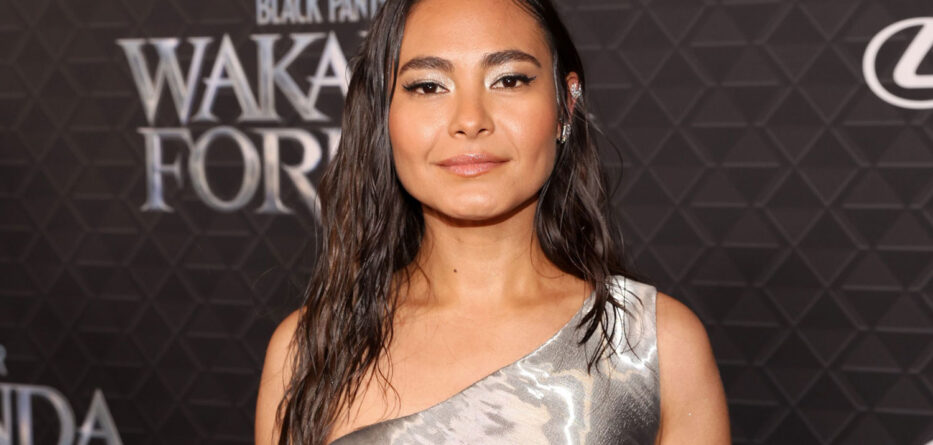Arturo Hilario
El Observador
Black Panther: Wakanda Forever takes place years after the original worldwide success and, for a sobering dose of reality, begins with the most recent Black Panther, T’Challa (the late Chadwick Boseman) succumbing to an unnamed disease off-screen.
It is up to the Wakandan community, especially his closest family and friends, to pick up the pieces and begin the painful process of moving on for the good of the country.
It’s a film that advances the story of Wakanda but is very careful to remember the impact Chadwick Boseman had on the Black Panther character and the world he inhabited.
With the mourning of Wakanda, a new threat rises from the sea, the ancient Mesoamerican superhumans of a hidden city called Talokan, who are forced to the surface after a new technology threatens to expose their secret city to the world and all those who want to exploit their wealth and resources.
Just like when Wakanda was brought to life in the original Black Panther, Wakanda Forever counted upon cultural consultants who helped create a nation built on Mesoamerican and indigenous inspirations, from clothing and belief systems to the use of the Mayan language as dialogue in the film.
After its release in November 2022, the film received rave reviews that highlighted the new actors of the Marvel universe that brought to life the Mesoamerican underwater kingdom of Talokan.
We recently had the opportunity to speak with the Mexican actress Mabel Cadena, who plays Namora, the cousin and right-hand warrior of King Namor (Tenoch Huerta).
In the interview, Cadena spoke about the experience of working on such an extensive project, reflecting on the film’s release, the feedback from loved ones and fans and what it was like to represent Latinos in a Marvel blockbuster with parallels to the real Mesoamerican culture.
Black Panther: Wakanda Forever is now streaming on Disney+ and available to purchase on Blu-ray/digital.
To start with, since the movie came out, what has been the feedback you’ve received from friends, family, fans? And are there any surprising opinions or perspectives?
Jeez, I think that everything has been surprising and everything has been too much. I don’t really know what the right word is, because I think that in relation to my family we have experienced something where none of us expected something like this to happen in my life. So it has been embracing something super cute and at the same time growing and learning with the experience. And on the other hand, for me it has been like beautiful to be able to take part on this. I’ve talked to people, well, many times, but the way I’ve connected with the fans of this film has been unique.
I have never, ever talked to people who have so much truth in their eyes and in their words and move so many things and who connect so many things in their stories from the film that we made. So that has been super special to me and what they share with me has been overwhelming in a beautiful way because you never think that a movie like this can connect so personally with people.
And what was it like to represent the Latino culture in a Marvel movie of this caliber?
Well, the truth is that it is a super shocking experience at first and then it becomes something beautiful, it becomes something that really moves you because you feel part of something bigger than a superhero movie, you know. When I saw the movie for the first time, I suddenly said “Wow!” I never ever imagined hearing an indigenous language like Maya in a movie of this dimension, not with such a leading role, with such a strong presence in the ears, because Maya is never, ever dubbed.
You see small gestures of our culture represented that become part of a new Talokan culture that really gives you an opportunity to take stories you grew up with and turn it into a fantastic new story.
Six languages are spoken in the film, there is a diversity of faces, of colors. Suddenly you see small gestures of our culture represented that become part of a new Talokan culture that really gives you an opportunity to take stories you grew up with and turn them into a fantastic new story. Not part of a fictional universe, but just as beautiful, just as powerful, with a lot of dignity, with a lot of strength, with a culture of which you feel proud to be a part of.
And finally, thanks again Mabel, for those who haven’t seen the movie yet, why would you recommend them to watch Black Panther: Wakanda Forever?
Because I think that suddenly it is very nice to connect with our stories, with our children, with our emotion, with our illusion. Suddenly it’s really nice to see yourself, to see ourselves, to see different faces in a film like this. The truth is that Black Panther is a film full of creation in terms of costumes, makeup. There is a level of professionalism in each of the areas that I think makes our film a great film, a worthy film, a film full of emotion, of humanity, it humanizes each of these characters.
They are no longer just superheroes, they are humans who are trying to take care of their land, to take care of their people, to dignify their origins and I think that lives in each one of us, regardless of where we come from, right?
I have always said that both Wakanda and Talokan, despite the fact that we have completely different histories, are moved by the same feeling, the same thought. And that means that in the end the film can have an outcome like the one it has.
So if you want to see that outcome, then watch it!






